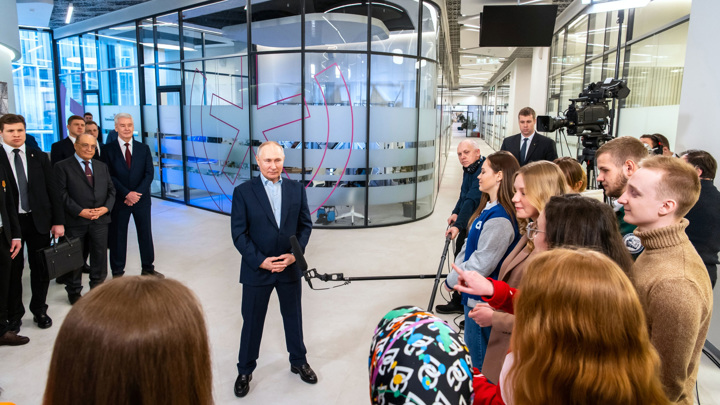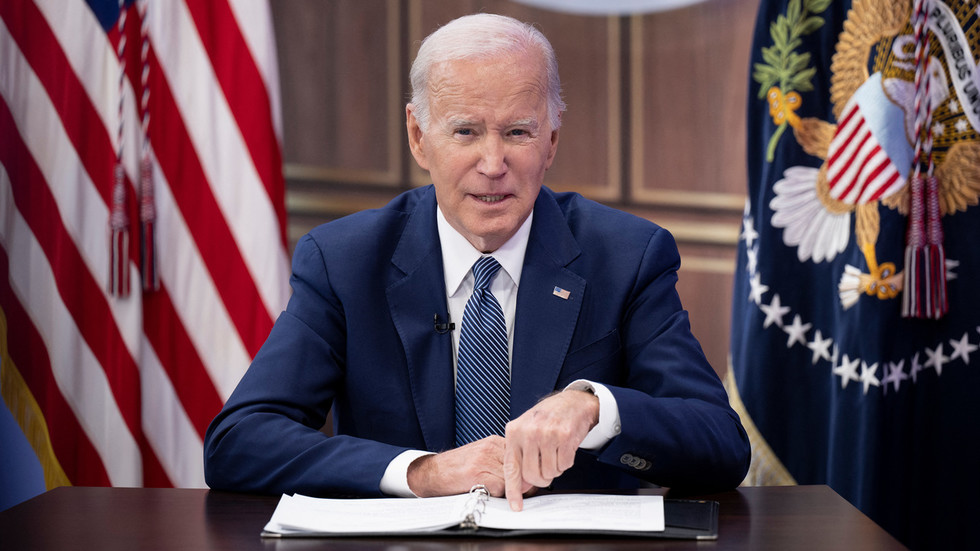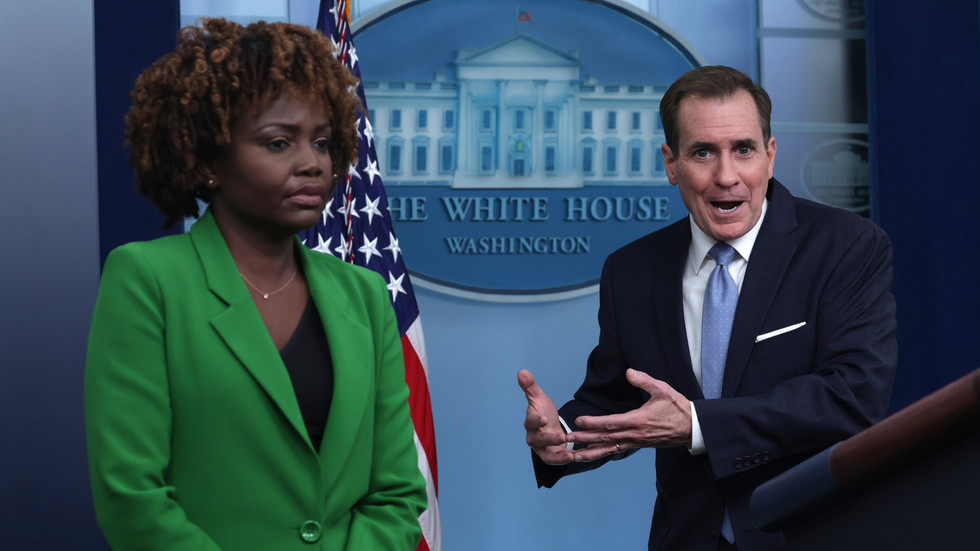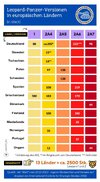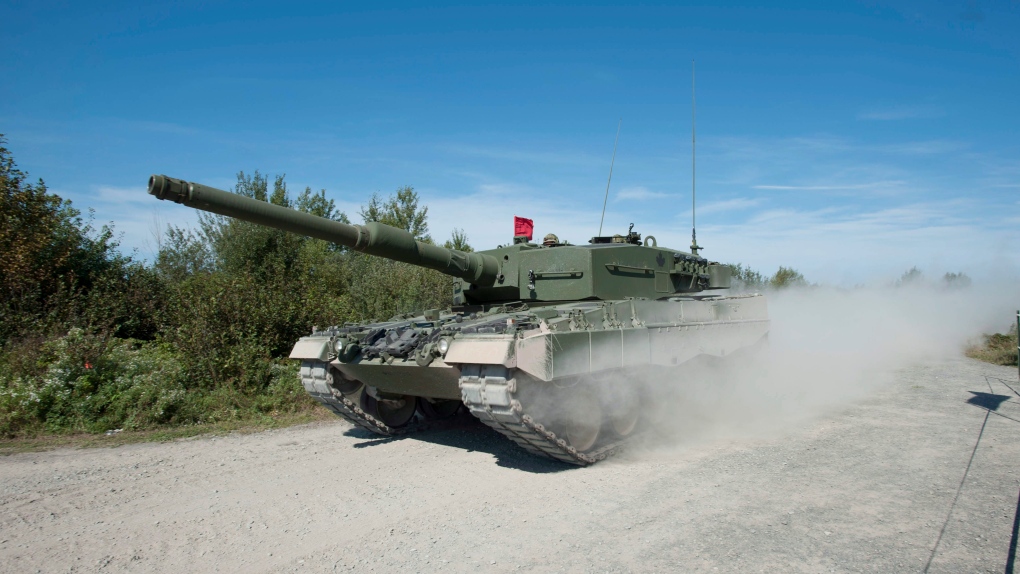Ukraine conflict: 'Now would be the right time to resume the broken-off negotiations'
'Arms deliveries mean that the war will be pointlessly prolonged'
Interview with General a. D. Harald Kujat*
Current affairs in focus How do you value the coverage of Ukraine in our mainstream media?
General a D. Harald Kujat The Ukraine war is not only a military conflict; it is also an economic and information war. In this information war, one can become a participant in the war by embracing information and arguments that one cannot verify or judge on one's own authority. In some cases, moral or ideological motives also play a role. This is particularly problematic in Germany, because it is mostly 'experts' who have their say in the media who have no knowledge or experience of security policy or strategy, and who therefore express opinions that they obtain from the publications of other 'experts' with comparable expertise. Obviously, this also puts political pressure on the federal government. The debate about the delivery of certain weapon systems clearly shows the intention of many media to make politics themselves. It may be that my uneasiness about this development is a consequence of my many years of service in NATO, including as Chairman of the NATO-Russia Council and the NATO-Ukraine Commission of Chiefs of Defense.
I find it particularly annoying that so little attention is paid to German security interests and the dangers to our country as a result of the war escalating and escalating. This shows a lack of responsibility or, to use an old-fashioned term, a highly unpatriotic attitude. In the United States, one of the two main actors in this conflict, the handling of the Ukraine war is much more differentiated and controversial, but always guided by national interests.
At the beginning of 2022, when the situation on the border with Ukraine was becoming increasingly critical, you spoke to the then Inspector of the Navy, Deputy General Kai-Achim Schönbach, and in a certain sense backed him. He urgently warned against an escalation with Russia and accused the West of having humiliated Putin and that one should negotiate with him on an equal footing.
I did not comment on the matter, but to protect him from unqualified attacks. However,
I have always believed that this war must be prevented and that it could have been prevented. I also made a public statement on this in December 2021. And at the beginning of January 2022, I published proposals on how negotiations could achieve a result acceptable to all sides that would still avoid war. Unfortunately, things turned out differently. Perhaps one day the question will be asked who wanted this war, who didn't want to prevent it and who couldn't prevent it.
How do you assess the current development in Ukraine?
The longer the war lasts, the more difficult it becomes to reach a negotiated peace. The Russian annexation of four Ukrainian territories on September 30, 2022 is an example of a development that is difficult to reverse. That is why I found it so regrettable that the negotiations, which were held in Istanbul in March, were broken off after great progress and a thoroughly positive result for Ukraine.
In the Istanbul negotiations, Russia had apparently agreed to withdraw its armed forces to the level of February 23, i.e. before the start of the attack on Ukraine. Now the full withdrawal is being demanded again and again as a prerequisite for negotiations.
What did Ukraine offer in return?
Ukraine had pledged to renounce NATO membership and not to permit the stationing of foreign troops or military facilities. In return, it should receive security guarantees from states of its choice. The future of the occupied territories was to be resolved diplomatically within 15 years, with the explicit renunciation of military force.
Why wasn't the treaty that would have saved tens of thousands of lives and spared Ukrainians the destruction of their country?
According to reliable information, the
British Prime Minister at the time, Boris Johnson, intervened in Kyiv on April 9 and prevented the signing. His reasoning was that the West was not ready for an end to the war.
It is outrageous what is being played, of which the gullible citizen has no idea. The negotiations in Istanbul were well known, and that an agreement was about to be reached, but
from one day to the next nothing was heard.
In mid-March, for example, the British “Financial Times” reported on progress. Corresponding reports also appeared in some German newspapers. However, it was not reported why the negotiations failed. When Putin announced partial mobilization on September 21, he publicly mentioned for the first time that
Ukraine had responded positively to Russian proposals in the Istanbul negotiations in March 2022. 'But,' he said literally,
'a peaceful solution did not suit the West, so it actually ordered Kyiv to nullify all agreements.'
Our press is actually silent about this.
Unlike the American media, for example. 'Foreign Affairs' and 'Responsible Statecraft', two well-known journals, published very informative reports. The Foreign Affairs article was by Fiona Hill, a former senior White House staffer on the National Security Council. She is very competent and absolutely reliable.
Very detailed information was already published on May 2nd in the pro-government «Ukrainska Pravda».
Do you have any more information about this monstrosity?
It is known that
the essential contents of the draft agreement are based on a proposal by the Ukrainian government on March 29. Many American media are now also reporting on this. However, I have learned that the German media are not willing to take up the subject even if they have access to the sources.
In an article you say: 'The lack of security policy foresight and strategic judgment in our country is shameful.' What do you mean by that?
Let's take the state of the Bundeswehr as an example. In 2011, a Bundeswehr reform was carried out, the so-called realignment of the Bundeswehr. Reorientation meant moving away from the constitutional mandate of national and alliance defense and towards foreign missions. The reason given was that there was no risk of a conventional attack on Germany and the NATO allies. The size and structure of the armed forces, equipment, armament and training were geared towards foreign missions. Armed forces that have the ability to defend their country and alliance can also carry out stabilization missions, especially since the federal government and parliament can decide on this themselves in individual cases. Conversely, this is not the case, because the aggressor decides whether the case of national and alliance defense occurs. The assessment of the situation at the time was wrong anyway.
The unilateral cancellation of the ABM treaty by the USA in 2002 marked a strategic turning point in relations with Russia. The
political turning point was the NATO summit in Bucharest in 2008, when US President George W. Bush tried to get Ukraine and Georgia invited to join NATO. When he failed to do so, a vague prospect of accession for these countries was included in the communiqué, as is usual in such cases.
Based on this development between Russia and the USA, do you see a connection with the current crisis?
Although the risk of a confrontation between Russia and NATO is obvious to everyone as a result of the Ukraine war, the Bundeswehr continues to be disarmed, even cannibalized, in order to free up weapons and military hardware for Ukraine. Some politicians even justify this with the nonsensical argument that our freedom is being defended in Ukraine.
Why do you think this is a nonsensical argument? Everyone argues like that, even the head of the Swiss foreign department, Ignazio Cassis.
Ukraine is fighting for its freedom, for its sovereignty and for the territorial integrity of the country. But the two main players in this war are Russia and the USA. Ukraine is also fighting for US geopolitical interests. Because their declared goal is to weaken Russia politically, economically and militarily to such an extent that they can turn to their geopolitical rival, the only one capable of endangering their supremacy as a world power: China. Moreover, it would be highly immoral to leave Ukraine alone in its struggle for our freedom and merely supply arms that prolong the bloodshed and increase the country's destruction. No, this war is not about our freedom. The core problems why the war arose and is still going on, even though it could have ended long ago, are quite different.
What do you think is the core problem?
Russia wants to prevent geopolitical rival USA from gaining a strategic superiority that endangers Russia's security. Be it through Ukraine's membership in the US-led NATO, be it through the stationing of American troops, the relocation of military infrastructure or joint NATO maneuvers. The deployment of American systems of NATO's ballistic missile defense system in Poland and Romania is also a thorn in Russia's side, because Russia is convinced that the USA could also use these launching facilities to eliminate Russian intercontinental strategic systems and thus endanger the strategic nuclear balance. The Minsk II agreement also plays an important role, in which Ukraine has committed itself to granting the Russian-speaking population in the Donbas by the end of 2015, through a constitutional amendment with greater autonomy for the region, minority rights that are standard in the European Union. There are now doubts as to whether the US and NATO were prepared to seriously negotiate these issues before the Russian attack on Ukraine.
In his book “Am Abgrund” (2015), Wilfried Scharnagl clearly shows that Western politics is an unbelievable provocation and that if the EU and NATO do not change course, a catastrophe could ensue.
Yes, you have to reckon with that.
The longer the war lasts, the greater the risk of expansion or escalation.
We already had that in the Cuban Missile Crisis.
That was a similar situation.
How do you assess the decision to supply Marder tanks to Ukraine?
Weapon systems have strengths and weaknesses due to technical features and thus - depending on the training level of the soldiers and the respective operational framework conditions - a certain operational value. In combined arms combat, various weapon systems work together in a common command and information system, whereby the weaknesses of one system are offset by the strengths of other systems. With a low level of training of the operating personnel or if a weapon system is not used together with other systems in a functional context and the operating conditions are possibly difficult, the operational value is low. This means there is a risk of being knocked out prematurely or even the risk of the weapon falling into the opponent's hand. This is the current situation in which modern western weapon systems are used in the Ukraine war. In December, Russia began an extensive program to evaluate the technical and operational-tactical parameters of captured Western weapons, which is intended to increase the effectiveness of its own operations and weapon effectiveness.
In addition, there is the fundamental question of the means-end relationship. What purpose should Western weapons serve? Zelensky has repeatedly changed the strategic goals of Ukrainian warfare. Currently, Ukraine's goal is to recapture all Russian-held territories, including Crimea.
The German Chancellor says we will support Ukraine as long as it is necessary, including in pursuing this goal, although the USA has meanwhile emphasized that it is only a question of “recapturing the territory that has been occupied by Russia since February 24, 2022 .»
It is therefore necessary to answer the question of whether the means of Western arms deliveries are suitable for fulfilling the purpose intended by Ukraine. This question has a qualitative and a quantitative dimension. The United States does not supply any weapons other than those for self-defense, no weapons that would enable combined arms combat and, above all, none that could trigger a nuclear escalation. Those are President Biden's three nos.
How does Ukraine intend to achieve its military goals?
The Ukrainian Chief of Staff, General Zalushniy, recently said: 'I need 300 main battle tanks, 600 to 700 armored personnel carriers and 500 howitzers to push the Russian troops back to the positions before the February 24 attack. However, with what he received, “major operations are not possible”. However,
it is questionable whether the Ukrainian armed forces still have a sufficient number of suitable soldiers to be able to use these weapon systems in view of the heavy losses in recent months. In any case, General Zalushniy's testimony also explains why the supply of weapons from the West does not enable Ukraine to achieve its military goals, but only prolongs the war. In addition, Russia could surpass the western escalation with its own at any time.
In the German discussion, these connections are not understood or ignored.
The way in which some allies are trying to publicly urge the federal government to deliver Leopard 2 main battle tanks also plays a role here. That has never happened before in NATO.
It shows how badly Germany's reputation in the alliance has suffered as a result of the weakening of the Bundeswehr and with what commitment some allies are pursuing the goal of exposing Germany to Russia in particular.
What fuels Selsenky's view that the Russians can be expelled from Ukraine?
With the weapons systems promised to them at the next donor conference on January 20,
the Ukrainian armed forces may be able to defend themselves more effectively against the Russian offensives taking place in the coming weeks.
However, you cannot reconquer the occupied territories by doing so. According to the US Chief of Staff, General Mark Milley, Ukraine has achieved what it could achieve militarily. More is not possible. That is why diplomatic efforts should now be started to achieve a negotiated peace. I share this view.
It should be borne in mind that Russian forces apparently intend to defend the conquered territory and conquer the rest of the Donbas in order to consolidate the territories they annexed. They have well adapted their defensive positions to the terrain and heavily fortified. Attacks on these positions require great effort and the willingness to accept significant casualties. As a result of the withdrawal from the Kherson region, about 22 000 combat-ready troops freed up for offensives. In addition, other combat units are relocated to the region as reinforcements.
But then what is the purpose of the arms deliveries that do not allow Zelenskiy's goal to be achieved?
Current US efforts to persuade Europeans to continue supplying arms may have something to do with this development of the situation. You have to distinguish between the publicly expressed reasons and the concrete decisions of the federal government. It would lead too far to go into the whole spectrum of this discussion.
However, I would wish that the federal government would be given really competent advice on this issue and – what is perhaps even more important – would be receptive and able to make judgments in line with the importance of this question.
The federal government has already gone a long way in supporting Ukraine. Arms deliveries do not yet make Germany a party to the conflict. But in connection with the training of Ukrainian soldiers on these weapons, we support Ukraine in achieving its military goals. In its report of March 16, 2022, the scientific service of the German Bundestag therefore declared that the secured area of non-warfare was thus left. The USA will also train Ukrainian soldiers in Germany. In its preamble,
the Basic Law contains a strict commandment to keep our country peaceful. The Basic Law only tolerates support for a warring party if this is suitable for enabling a peaceful solution. The Federal Government is therefore obliged to explain to the German population within what limits and with what aim support for Ukraine is provided. Finally, the Ukrainian government should also be shown the limits of support. Some time ago, even President Biden stated in a dedicated article that the USA will continue to support Ukraine militarily, but also its efforts to achieve a negotiated peace in this conflict.
The Ukrainian army has been attacking the Russians for weeks - without success. Nevertheless, Selensky speaks of reconquest. Is this propaganda or is there a real possibility?
No, the Ukrainian armed forces are incapable of doing that, according to both the American and Ukrainian chiefs of staff. Both warring factions are currently back in a stalemate, exacerbated by seasonal restrictions. So now would be the right time to resume the broken-off negotiations. T
he arms shipments mean the opposite, meaning that the war will be needlessly prolonged, with more casualties on both sides and the continued destruction of the country. But also with the result that we are drawn even deeper into this war. Even the NATO Secretary General recently warned against escalating fighting into a war between NATO and Russia.
They say we have a 'stalemate' again. What do you mean by that?
A positive starting point for a negotiated solution emerged at the end of March last year, for example, when the Russians decided to turn off before Kyiv and concentrate on the east and the Donbas. That made the negotiations in Istanbul possible. A similar situation arose in September, before Russia carried out the partial mobilization. The opportunities that arose at that time have not been used.
Now it would be time to negotiate again, and we don't use this opportunity either, but do the opposite: we send weapons and escalate. This is also an aspect that reveals the lack of security policy foresight and strategic judgment.
You also mentioned in your text that the Russian Defense Minister Shoigu had signaled his readiness for negotiations...
… Putin did the same thing. On September 30, Putin expressly offered to negotiate again when he declared two more regions to be Russian territory. He has done this several times in the meantime. Now, however, the fact is that Shoigu didn't make it conditional, but Putin sort of raised the bar by saying we're ready to negotiate, but of course that assumes that the other side annexes the areas that we're annexing have, acknowledges. This shows that the positions of both sides harden the longer the war lasts. Zelensky said he would only negotiate once the Russians had completely withdrawn from Ukraine. This makes a solution increasingly difficult, but it is not yet impossible.
I would like to mention one more event. In an interview, Ms. Merkel...
… yes, what she says is clear.
She only negotiated the Minsk II agreement to buy Ukraine time. And Ukraine also used this to build up its military forces.
Former French President Hollande has confirmed this.
Petro Poroshenko, the former President of Ukraine, said the same thing.
Russia understandably calls this a scam. And
Merkel confirms that Russia was deliberately deceived. You can assess that however you want, but it is a blatant breach of trust and a question of political predictability. What cannot be denied, however, is that the refusal of the Ukrainian government – aware of this intended deception – to implement the agreement just a few days before the start of the war was one of the triggers for the war. In the UN resolution, the federal government had committed itself to implementing the “entire package” of the agreed measures.
In addition, the Chancellor and the other participants in the Normandy format signed a declaration on the resolution in which she once again expressly committed herself to implementing the Minsk agreements.
Isn't that also a breach of international law?
Yes, that is a breach of international law, that is clear. The damage is immense. You have to imagine the situation today. The people who wanted and still want to go to war from the start took the position that you cannot negotiate with Putin. He doesn't keep the agreements anyway.
Now it turns out we are the ones who are breaking international agreements.
As far as I know, the Russians are honoring their contracts, even during the current war, Russia has continued to supply gas. But Ms. Baerbock announced full-bodied: 'We don't want any more Russian gas!' As a result, Russia throttled the crowd. Wasn't that how it was?
Yes, we said we don't want any more Russian gas.
All the consequences, the energy crisis, the economic recession, etc. are the result of the decision of the federal government and not a decision of the Russian government.
But if you hear or see the news - also here in Switzerland - then there is the energy crisis because of Putin's decision to go to war against Ukraine.
In the past there have been two gas supply difficulties caused by Ukraine.
You should be honest about that. Russia would continue to deliver, but we no longer want anything from there because it attacked Ukraine. Then the question arises: who actually blew up North Stream II?
Do you have an opinion on the blast?
No, that would be pure speculation. There is circumstantial evidence, as is so often the case, but no proof. At least none that have become public knowledge. But you can be absolutely sure: the sun will bring it to light.
What is your experience in negotiations with Russia?
I conducted many negotiations with Russia, e.g. B. about the Russian contribution to the Kosovo mission of NATO. The United States asked us to do this because they couldn't come to any conclusions with Russia. Finally, Russia was willing to subordinate its troops to a German NATO commander. In the 1990s, there was close political coordination and military cooperation between NATO and Russia, which has been regulated by the NATO-Russia Basic Treaty since 1997.
The Russians are tough negotiating partners, but if you come to a joint result, then that's it and it's valid.
What was the result?
The Russians wanted a kind of codecision right in the negotiations on the basic treaty. That wasn't possible. However, we have found a way to find common solutions in cases where the security interests of one side or the other are affected. Unfortunately, after the war in Georgia, NATO largely suspended cooperation. The run-up to the Ukraine war has also shown that arrangements made to resolve crises and conflicts when relations are good are valuable when tensions arise. Unfortunately, that was not understood.
General Kujat, thank you for the interview.
Interview Thomas Kaiser
* Retired General Harald Kujat, born on March 1, 1942, was a.o.
Inspector General of the German Armed Forces and, as Chairman of the NATO Military Committee, the highest military officer in NATO. At the same time he served as Chairman of the NATO-Russia Council and the Euro-Atlantic Partnership Council of the Chiefs of Staff. Harald Kujat was honored with a large number of awards for his services, including the Commander's Cross of the Legion of Honor of the Republic of France, the Commander's Cross of the Order of Merit of Latvia, Estonia and Poland, the Legion of Merit of the United States, and the Grand Ribbon of the Order of Leopold of the Kingdom of Belgium , the Grand Cross of Merit of the Federal Republic of Germany, as well as other high awards, including from Malta, Hungary and NATO.
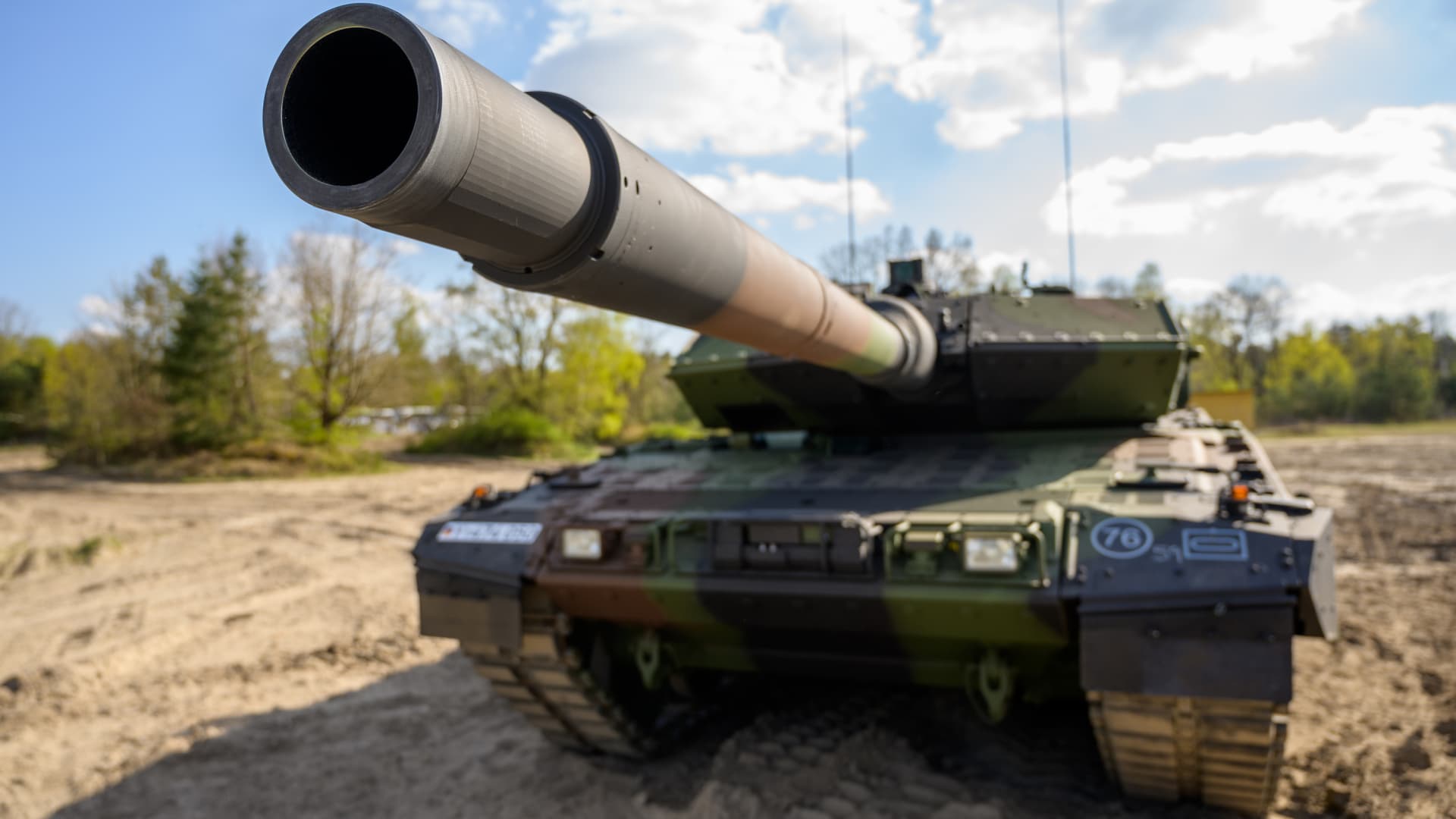
 www.cnbc.com
www.cnbc.com
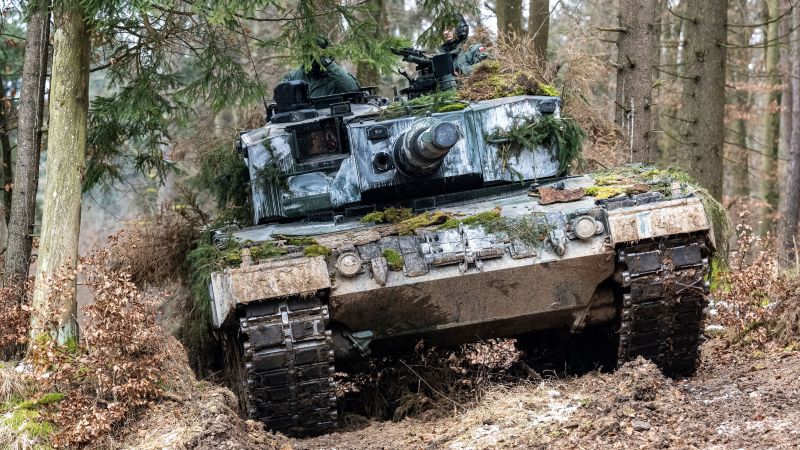
 www.cnn.com
www.cnn.com




